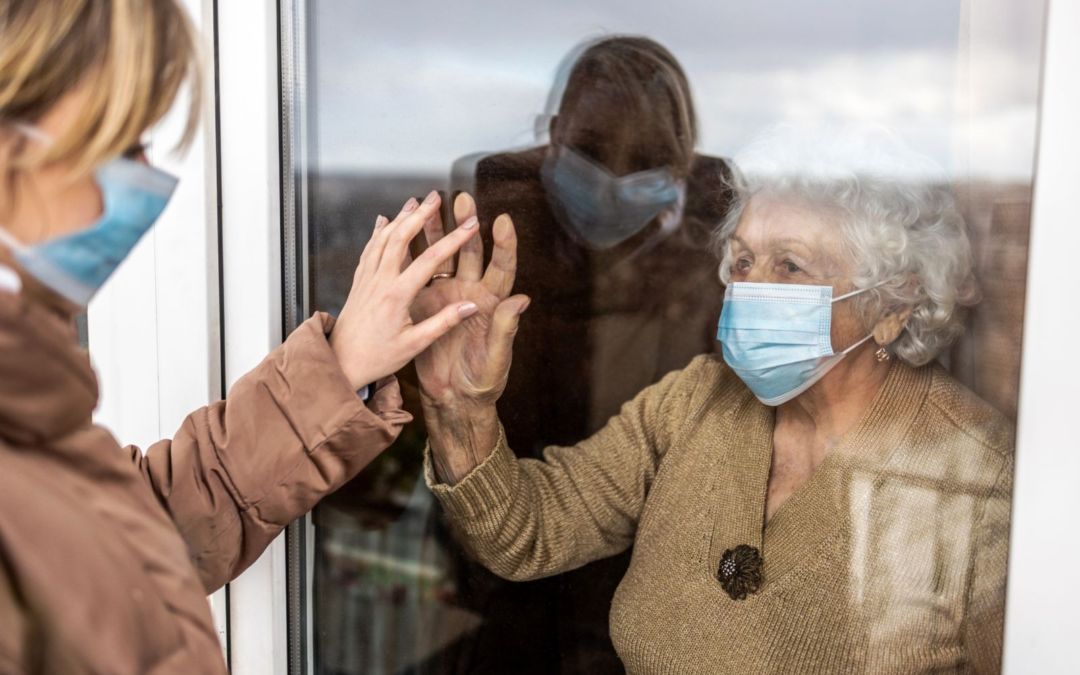Reference
De Pue, S., Gillebert, C., Dierckx, E. et al. The impact of the COVID-19 pandemic on wellbeing and cognitive functioning of older adults. Sci Rep 11, 4636 (2021)
Summary
The COVID-19 pandemic took a heavy toll on older adults. As frail individuals, they were particularly affected by the strict restrictions imposed by governments. This study was conducted in Belgium with the aim of assessing the impact of these restrictions on mental health, in adults aged 65 and older, and of analyzing the possible influencing factors. From the results of an online questionnaire, it appears that older adults experienced a decrease in activity, quality of sleep, and overall wellbeing during the pandemic. These factors strongly correlate with depression. This study shows that the COVID-19 pandemic had a severe impact on the mental health of older adults. They can therefore be considered a group at risk, which requires particular attention from healthcare professionals.
Context and starting point
The COVID-19 pandemic had a strong impact on older adults, who suffered the highest number of victims. This group was the target of severely restrictive regulations, such as being prohibited from looking after their grandchildren and having contact with outside visitors for a long period of time. Moreover, the general population was constantly reminded to avoid contact with older, more vulnerable adults. The World Health Organization (WHO) has warned that the health crisis may possibly have an important repercussion on the mental health of this group. In particular, social distancing, isolation, and limited physical activity for at-risk individuals can increase loneliness and social isolation, which in turn reduces wellbeing and increases depression and cognitive disfunction. Stress can also cause a worsening of sleep quality, further increasing the risk of depression. Studies of natural disasters have shown that socializing is crucial for reducing cognitive impairment and increasing wellbeing; however, socializing is precisely what has been limited during the COVID-19 pandemic. In the past months a few papers have analyzed the impact of COVID-19 in older adults, without significant findings. However, as stated by the authors, these studies were conducted in the early stages of the pandemic, when lockdowns were not yet in place.
The characteristics of the study
The aim of the study was to establish the impact of the COVID-19 pandemic on 640 individuals who were 65 years and older and lived in Belgium. An online survey, employing self-report measures, was used to analyze the impact of the pandemic on wellbeing, activity level, sleep quality, and cognitive functioning (Cognitive Failures Questionnaire, Geriatric Depression Scale-15, Personal Wellbeing Index-Adults, Lubben Social Network Scale-6, Brief Resilience Scale). The authors also examined possible protective or vulnerability factors that may have influenced the impact of restrictions.
The results
The median age of participants was 73 years and the majority were women. Most subjects lived in their own home, alone or with one cohabitant. The majority of participants reported a low number of social interactions outside the house and no contact with people (other than the cohabitant) inside; most interactions occurred through the internet. The majority of participants (88%) did not suffer from Parkinson’s disease, dementia, stroke, diabetes and/or epilepsy. Only 4% were infected by the coronavirus. Wellbeing, overall life satisfaction, safety, community connectedness and certainty about the future had the most marked reductions. Half of the subjects reported a reduction in activity levels and 19% experienced poorer sleep. Only 8% of the subjects reported a decrease in cognitive functions. Changes in general life satisfaction were associated with depression, especially in those living in a care facility. Depression was significantly correlated to a marked decline in quality of sleep for male subjects. Finally, depression was associated with cognitive impairment.
Limitations of the study
The study has some limitations. First, the sample of older adults in this study was younger than the average age of the older population in the same geographic area. Furthermore, the subjects were all adult Belgians, mostly in good health, of a high socio-economic status, and characterized by a high number of graduates with good income. The authors therefore urge caution in generalizing the result of this study to the general population, especially in other countries.
Depression seems to be a vulnerability factor that influences the impact of COVID-19 on older subjects. That said, the cross-sectional design of the study did not allow for clearly establishing whether depression was already present or whether it was triggered or worsened by the pandemic. The questionnaire was administered online, so only a part of the older population could be reached. Furthermore, questions about the pre-COVID-19 period were retrospective, with a possible bias.
What’s new and future perspectives
This is the first study demonstrating that the COVID-19 pandemic has had a significant impact on the older population, with a decline in well-being, activity levels and sleep quality. All changes reported during the COVID-19 period were strongly related to depression. In most cases, there was no reduction in cognitive abilities. Living in a care facility and male gender are significantly correlated with wellbeing and sleep quality, respectively. In the future, prevention and intervention strategies are needed to aid older adults in coping with stressors, especially for those at risk of depression. Specifically, since social networks can act as a buffer against negative events, it might be beneficial to emphasize the need to maintain relationships during a period of great stress, such as the COVID-19 pandemic.
Edited by Maria Lorena




